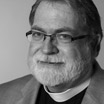Almighty and everlasting God, which hatest nothing that thou hast made, and dost forgive the sins of all them that be penitent; Create and make in us new and contrite hearts, that we worthily lamenting our sins, and acknowledging our wretchedness, may obtain of thee the God of all mercy, perfect remission and forgiveness through Jesus Christ. AMEN (Collect for the first day of Lent, commonly called Ash Wednesday, composed by Thomas Cranmer)
God hates nothing He has made. Not you or me. Not the “irregular” people we rub shoulders with every day. Not our enemies or antagonists. Not the people who despise us and whom we fear. Not the worst terrorist or sinner we can imagine. God hates nothing He has made. God loves us, one and all. The Good news is not some grumbling toleration of us, but rather of God’s intentional love from the very instant of creation.
This astonishing Gospel is at the heart of Thomas Cranmer’s effort to create a Book of Common Prayer for all people, and specifically at the heart of his reform of the Collects (common prayers) of the Church. But deeper still is Cranmer’s conviction—along with all the Bible-believing Anglican Reformers—that a proper diagnosis of our human condition precedes this Good News of God’s extravagant love.
As Anglicans we find this proper diagnosis in Article 9 of our 39 Articles of Religion, also authored by Cranmer, who declared in Article 9 “Of Original or Birth sin”:
“Original sin standeth not in the following of Adam (as the Pelagians do vainly talk) but it is the fault and corruption of the nature of every man that is engendered of the offspring of Adam, whereby man is very far gone from original righteousness, and of his own nature is inclined to evil, so that the flesh lusteth always contrary to the spirit; and therefore in every person born into this world, it deserveth God’s wrath and damnation.””
You can find all of our videos on the 39 Articles here, and here is Article 9; part 1, part 2 and part 3.
Translated: We are all “infected” with a disease called sin. Sin is a willful rebellion against God so that our own appetites, ambitions and desires are always at war with those of God and the Spirit. This disease has been passed down from generation to generation since humankind’s rebellion against God in the beginning of creation (see Genesis 3). This disease is inescapable. From the moment we are born to the moment we die, we are infected. It is wishful thinking to believe that you and I can choose not to sin. There is no self-help program, no exercise of the will, and no human works of righteousness that will cure and remove this disease in us. And it only takes one germ, one thought, one attitude, to be spiritually condemned. This is the rightly diagnosed human condition.
BUT there is a cure! Because He is fundamentally the God who hates nothing he made, he is positively the God of mercy. He never gives up on you and me! For that reason he has provided his one and only Son, Jesus Christ, as the substitutionary offering and atonement (putting away) of our sins once and for all time. As we pray this Collect for Lent, we affirm that through Jesus Christ alone we receive perfect forgiveness and remission of all our sins. In fact, Christ himself can create in us “new and contrite hearts.” In Christ, we receive the power to live our lives as he would, with new appetites, ambitions and desires.
Whenever we turn to Christ in penitence, we shine the light of Jesus Christ and his transforming love into our fallen world. But to many people in our culture, that light is now hiding under a bushel. The Church has sometimes listened to the voice of the culture, which says that our identity is anything we want it to be. Whenever the Church affirms that voice which says our identity and the good life can be found in whatever we choose, apart from Christ, the Church surrenders to our “original or birth sin.” As I observed last week, it is evidence of a deeper abandonment of the authority of Scripture, the Biblical doctrine of creation, the Biblical doctrine of marriage, and ultimately the very nature of the Gospel itself. Whenever we turn away from the clear word of God, we are like Adam and Eve in Genesis 3, who thought they knew better than God and by tasting the fruit of their choice would even become like God himself (Gen. 3:5). This is the heart of Original or Birth sin. And when the Church and its leaders think they know better than God’s word, they turn the Church into a mirror of the world rather than the light of the world.
But God “forgives the sins of all them that be penitent.” He restores both his presence and the ability to hear his voice to those who “get” the diagnosis. As Barbee and Zahl note in The Collects of Thomas Cranmer (Eerdmans, 1999), “Penitence means seeing things as they are and flinging back that discouraging truth to God to take care of and dispose.”
How many discouraging things do I see in myself– in thought, word and deed– that need some Lenten penitence? Among that discouraging list, I go back to my forbearers in the Garden. One of the casualties in Eden was our ability to recognize and hear with conviction God’s voice, his instruction, his invitation and blessing. “Did God really say…” was the voice with which the serpent infected Adam and Eve (Gen 3:1), a voice of infectious doubt magnified in humankind today by an increasingly aggressive secular culture. When God called to the man and said “where are you”” Adam hid because he was ashamed. (Gen. 3:9-10). He ran from God’s voice. We are still running.
I write this as a leader to leaders: whose voice are we listening to these days? Many voices are vying for the control of our minds and hearts. Each appetite, ambition and desire has its own voice. So do fear, anger, resentment, unforgiveness and a host of other unsavory attitudes. They are a crowd whose din fragments and frustrates our living.
The poet Fulke Greville (1554-1628) expressed it this way:
“Down in the depth of mine iniquity,
that ugly centre of infernal spirits;
where each sin feels her own deformity,
in these peculiar torments she inherits,
depriv’d of human graces, and divine,
even there appears this loving God of mine.”
And that includes all of us tormented by the strife of so many voices. In his reckless and extravagant love God can reach into that infernal din and quiet all those voices so that we can hear that one, sweet, clear and commanding voice of Jesus Christ, and without distraction say with all the saints “Speak LORD, for your servant is listening.”
Could that be the beginning of our Lenten penitence?
The Rev. Canon Phil Ashey is President & CEO of the American Anglican Council.



